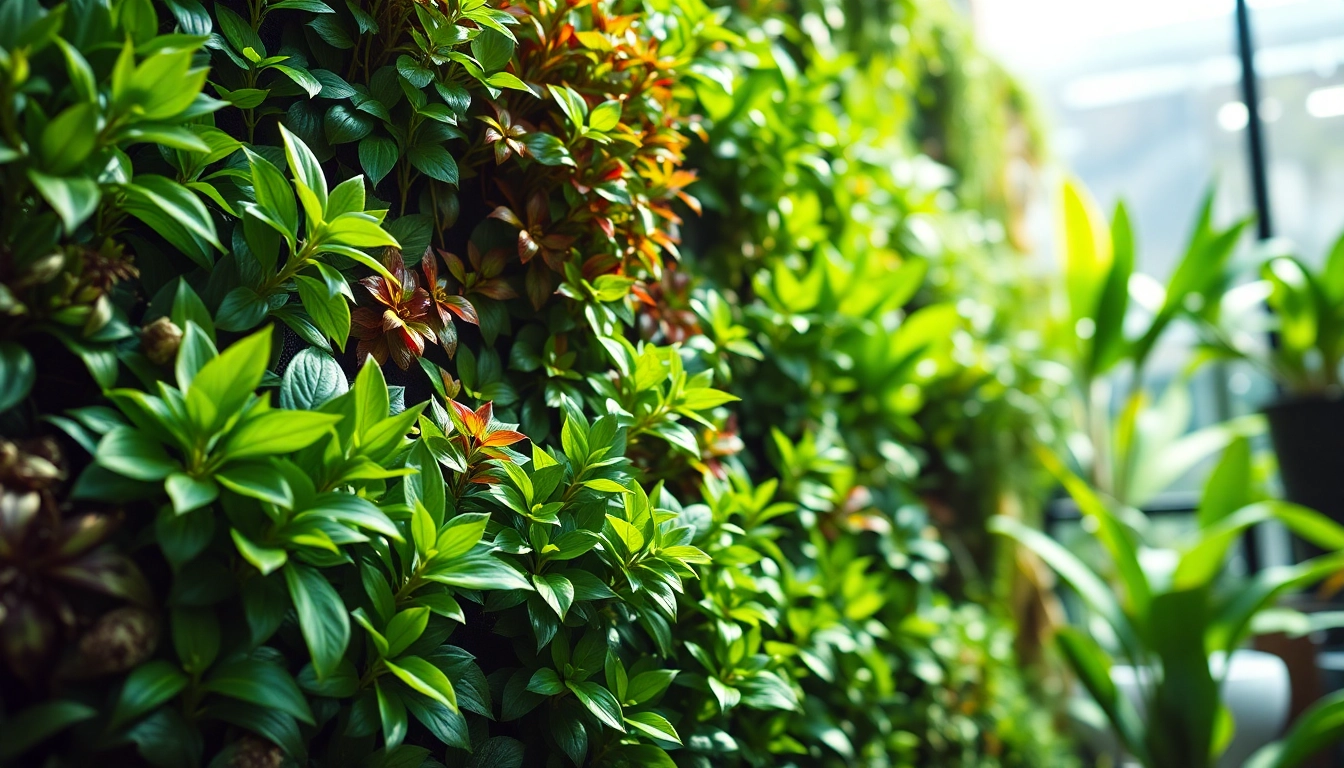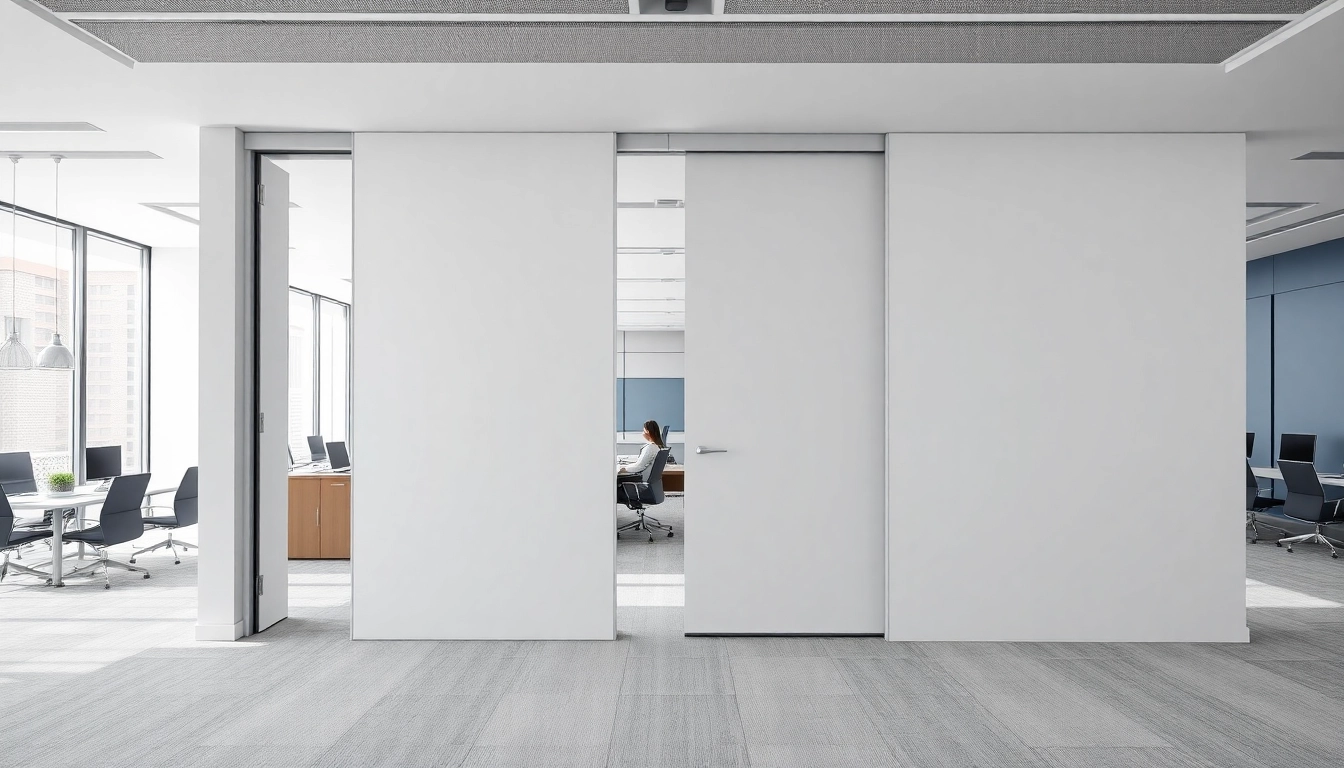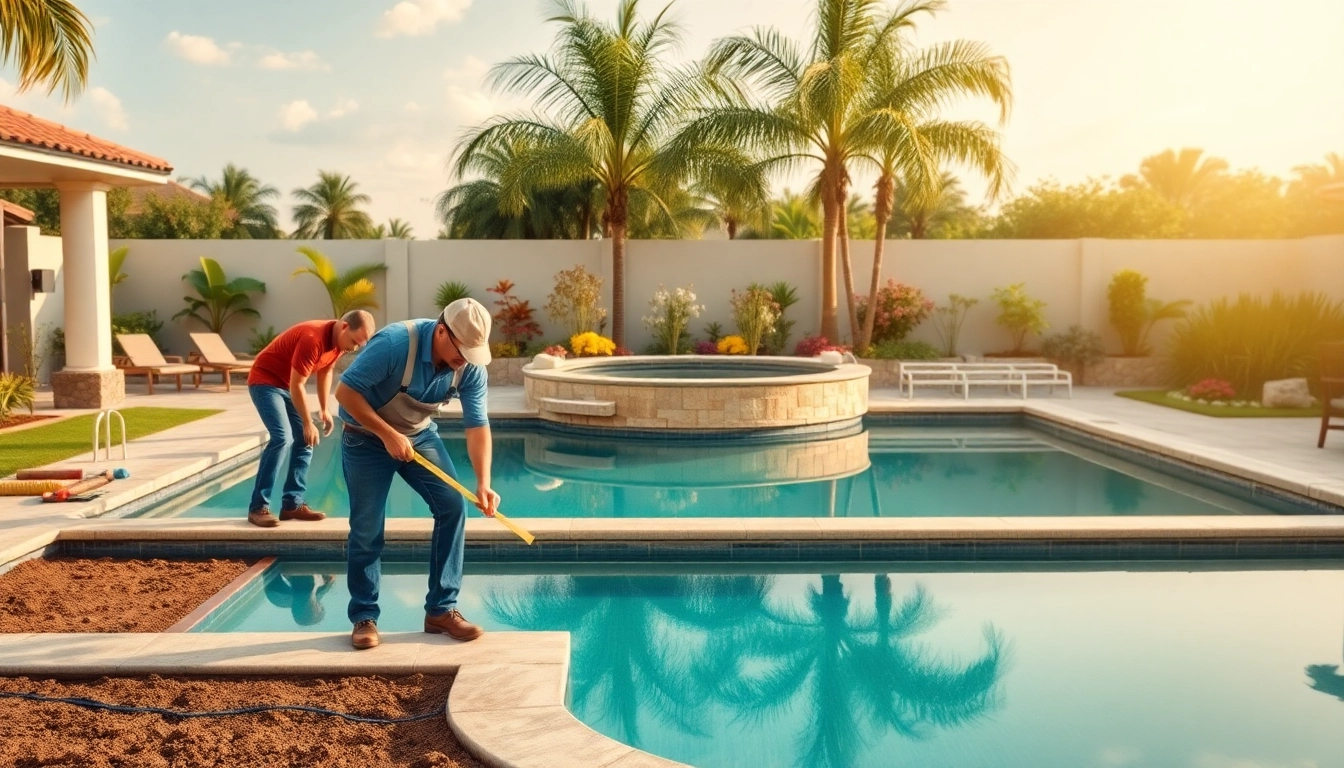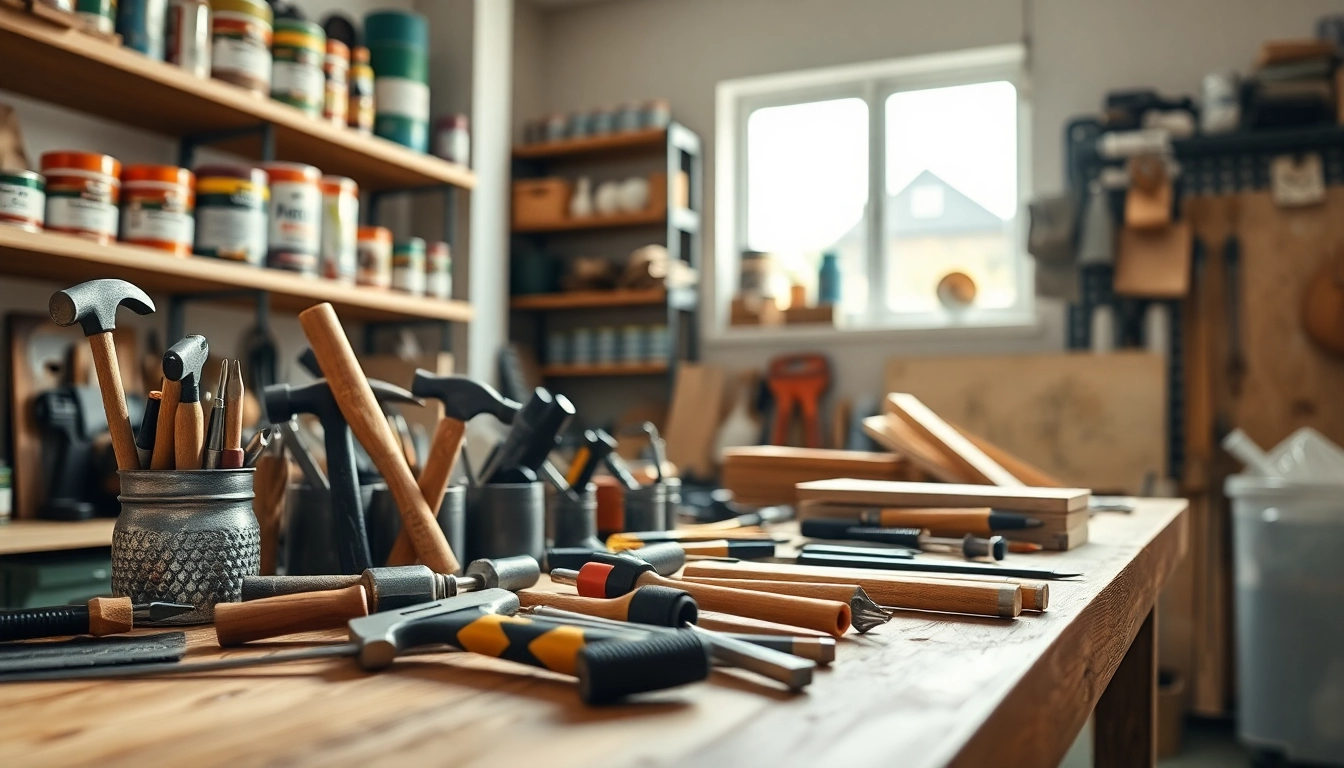
Understanding Wandbegrünung Indoor: The Basics
What is Wandbegrünung Indoor?
Wandbegrünung Indoor, or indoor green walls, refers to the incorporation of living plants onto vertical surfaces inside buildings. These living walls can significantly transform indoor spaces by not only enhancing aesthetics but also improving air quality and promoting a sense of tranquility. Often seen in modern offices, homes, and public spaces, these installations utilize a variety of plants arranged systematically to create visually stunning patterns while maximizing the use of vertical space.
Benefits of Indoor Green Walls
Indoor green walls are more than just beautiful additions to a space; they offer numerous benefits:
- Improved Air Quality: Plants naturally filter toxins and produce oxygen, thereby improving indoor air quality. They absorb pollutants like formaldehyde, benzene, and other harmful chemicals, making the environment healthier.
- Noise Reduction: Green walls can act as sound barriers, helping to absorb and diffuse sound, which is particularly beneficial in open-plan offices or homes located in noisy urban areas.
- Enhanced Aesthetic Appeal: A wall of vibrant greenery instantly elevates the aesthetic value of any room, creating a focal point that can impress visitors and promote creativity among residents.
- Mood Enhancement: Studies have shown that exposure to nature and greenery can reduce stress and enhance feelings of wellbeing. Implementing indoor green walls can foster a positive atmosphere.
- Temperature Regulation: Plants naturally regulate temperature and humidity, helping to maintain a comfortable indoor climate, especially in large spaces.
Ideal Plants for Wandbegrünung Indoor
Choosing the right plants for your indoor green wall is crucial. Some ideal options include:
- Pothos: Known for its resilience and attractive trailing leaves, Pothos thrives in low light and is very forgiving if neglected.
- Ferns: Various types of ferns, such as Boston ferns and bird’s nest ferns, prefer humid environments and can add lush textures to your wall.
- Spider Plant: This hardy plant is excellent for hanging planters and grows well in indirect sunlight, making it a popular choice for indoor walls.
- Peace Lily: With its beautiful white flowers, the Peace Lily not only purifies the air but also thrives in low light conditions.
- Succulents: For a more contemporary look, succulents can be integrated into green walls and require minimal maintenance, thriving in drier conditions.
Choosing the Right Space for Your Indoor Garden
Assessing Light Conditions
The first step in successfully implementing Wandbegrünung Indoor is to assess the lighting conditions of the intended space. Different plants have varying light needs, so it’s essential to identify whether the area is bright, medium, or low light. South-facing windows typically provide ample light, while rooms with no windows will require the use of grow lights to support plant growth.
Vertical Space Utilization
Indoor green walls are specifically designed to make the most of vertical space, which is often underutilized in homes and offices. When selecting a wall for your garden, ensure it is structurally sound and can support the weight of the plants and water systems. Consider the height of the installation — the lower sections should be accessible for maintenance tasks, while the upper parts can showcase larger plants for visual drama.
Climate Control for Indoor Plants
Temperature and humidity significantly affect the health of indoor plants. Most indoor plants prefer a temperature range between 65°F to 75°F (18°C to 24°C). It’s crucial to monitor humidity levels, especially in winter months when indoor heating can dry out the air. Using humidifiers or placing water trays near plants can mitigate these challenges, ensuring that your indoor garden thrives year-round.
Designing Your Wandbegrünung Indoor Setup
Layout Options for Wall Gardens
The layout of your indoor green wall can greatly impact its visual appeal and functionality. There are several design strategies to consider:
- Modular Systems: These are pre-manufactured panels or systems that allow you to create a green wall in squares or rectangles, making for easy installation and maintenance.
- Free-form Design: For those who want to exercise creativity, a free-form installation allows for a mixture of plant sizes and species, providing a more organic look.
- Vertical Planters: Use vertical planters fixed to the wall where you can adjust and rearrange the plants as they grow. This option is particularly flexible and adaptable.
Complementary Decor Elements
Integrating decor elements can enhance the charm and style of your indoor green wall. Consider incorporating:
- Lighting: Backlighting your green wall can emphasize the vibrant colors of the plants and create a stunning visual effect.
- Artwork: Surrounding the wall with tasteful art pieces can create a beautiful synthesis between nature and man-made elements, reflecting a well-thought-out interior design.
- Seating Areas: Placing seating nearby an indoor garden not only makes the environment more social but allows individuals to enjoy the calming effects of the greenery.
DIY vs. Professional Installation
Deciding whether to install an indoor green wall yourself or hire professionals is an important consideration. DIY installations can be rewarding and cost-effective, but they require time and some gardening knowledge. Alternatively, professional services can provide customized solutions and aesthetic advice suited to specific spaces, albeit at a higher cost.
Maintenance Tips for a Thriving Indoor Wall Garden
Watering Schedule and Techniques
Maintenance is key to realizing the benefits of your indoor green wall. Establishing a consistent watering schedule is critical. Generally, checking the soil moisture once a week is sufficient. When watering, ensure you provide enough water to reach the root system without over-saturating, which can lead to root rot. Utilizing drip irrigation can help automate this process and ensure even watering.
Pest Control for Indoor Plants
Pests can pose a significant threat to indoor gardens. Regular inspections for common pests like spider mites, aphids, and mealybugs are crucial. Utilizing organic insecticidal soap or neem oil is an effective way to manage infestations without harsh chemicals. Creating a healthy environment helps to prevent pests from becoming a problem — healthy plants are typically less susceptible to infestations.
Seasonal Care Adjustments
As seasons change, so too do the needs of your plants. During the growing season (spring and summer), plants may require more water and nutrients. In contrast, many plants enter a dormancy phase in fall and winter, requiring less water and lower temperatures. Adjust your care regimen accordingly, being attentive to any signs of stress, such as yellowing leaves or stunted growth.
Measuring Success: Metrics for Indoor Gardens
Assessing Plant Health
Regular monitoring of your indoor green wall will help you gauge your gardening success. Look for indicators such as leaf color, texture, and growth patterns. Healthy plants exhibit vibrant green leaves, while troubled plants may show discoloration or wilting. Keeping a growth log can help identify trends over time.
Impact on Air Quality
One of the primary benefits of indoor plants is their ability to improve air quality. To measure this impact, consider investing in a quality air quality monitor to check levels of common pollutants before and after installing your green wall. You’ll likely notice improved levels of pollutants and increased oxygen levels, contributing to a healthier indoor environment.
Enhancing Mood and Wellbeing with Wandbegrünung Indoor
Finally, measuring the psychological impacts of your indoor garden is equally important. Surveys assessing mood and stress levels before and after installation can provide valuable insights. Additionally, inviting friends or family to spend time in the space can yield anecdotal evidence of mood enhancement and improved wellbeing, highlighting the transformative power of nature in indoor environments.







